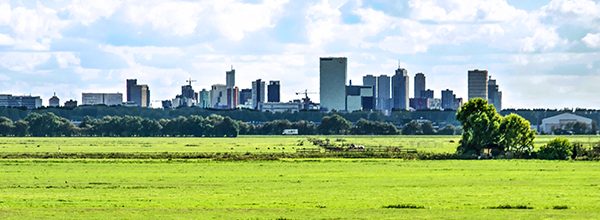Markets in which KOMO offers a distinction
The KOMO Quality Mark makes a distinction between the quality values of products intended for buildings and infrastructures. Discover in which 48 countries — and put these to use.
KOMO certificate holders are active in these countries
You find KOMO certificate holders worldwide in some 48 countries. They are ambitious companies that invest in objectively determined quality. In the quality of their KOMO certified product(s) and at the same time, in their internal quality control. This way they can always supply the very best for building and infrastructure. In everyone’s interest.
There are approximately 4.300 KOMO certificate holders in Austria, Belarus, Belgium, Bosnia, Brazil, Cameroon, Chile, China, Colombia, Costa Rica, Czech Republic, Denmark, Estonia, Finland, France, Gabon, Germany, Great Britain, Greece, Hungary, Ireland, India, Indonesia, Iran, Israel, Italy, Latvia, Liechtenstein, Luxembourg, Malaysia, Morocco, the Netherlands, Norway, Peru, Poland, Russia, Serbia, Singapore, Slovakia, Suriname, Sweden, Switzerland, Taiwan, Thailand, Turkey, Ukraine, United States and Vietnam.

Meaning of KOMO in the world
KOMO is 100% private and voluntary. It does not replace any labels or product designations (markings) that are required for a specific home market. In addition, KOMO is not tied to any government whatsoever. Nevertheless, the KOMO Quality Mark has a powerful, distinctive international image. This is because of the reliable track record, the independent and objective character, the stringent requirements and its careful application. And obviously as a result of the good experiences people have had with it, time and time again, for more than 55 years.
In addition, the fact that the KOMO certificate is the quality yardstick in the highly developed Dutch building and infrastructure practice plays a major role. This is the way KOMO creates mutual trust between clients in building and infrastructure on the one hand and between manufacturers/importers on the other. Is the KOMO Quality Mark on it? Then you know it’s good! Actually (on submarkets) throughout Western and Southern Europe, but for example, certainly also in the United States, Australia, Poland, Malaysia and Indonesia.

Meaning of KOMO in the Netherlands
Everything bearing the KOMO Quality Mark is and will continue to be objectively and repeatedly tested in compliance with the statutory requirements in the Netherlands, such as the Buildings Decree, the Soil Quality Decree, the European Energy Performance of Buildings Directive (EPBD), the Drinking Water Decree (drinking water pipeline requirements, legionella prevention) and Environmental Product Declarations (EPD, LCA).
Moreover, the KOMO Quality Mark proves that specific, professional market and/or project requirements are met in the building and infrastructure sector. This is why virtually all specifications in the Netherlands prescribe KOMO products in the product categories for which KOMO certificates are available. Batch inspections and/or other time and money-consuming procedures are then unnecessary: the buyer only needs to check whether the KOMO certificate is applicable.
KOMO promotes the operation of market forces by bringing supply and demand together
What the KOMO Quality Mark means for the demand side of the market is: certainty about quality. What the KOMO Quality Mark means for the supply side of the market is: distinctive character and a preferential market position compared to products without a KOMO Quality Mark, which have not been objectively and independently tested for quality. KOMO certificates promote the operation of market forces by bringing supply and demand together and providing mutual clarity about elements that are important in the building and infrastructure sector such as safety, sustainability, good insurability, limitation of maintenance requirements and value retention of projects in residential and non-residential building and in civil and hydraulic engineering.

